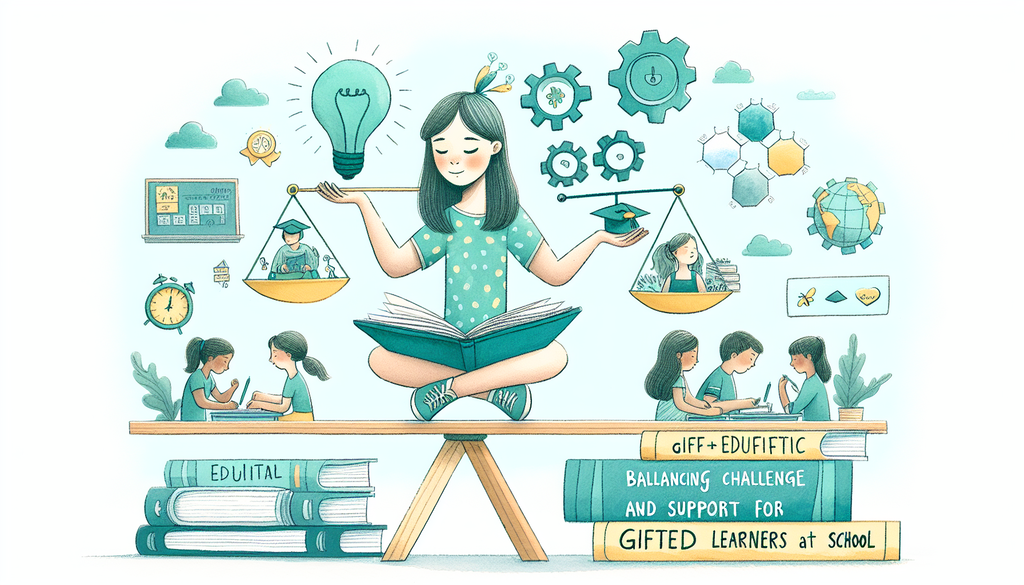Balancing Challenge and Support for Gifted Learners at School

It’s not always easy to provide the right balance of stimulation and support for children who are identified as gifted and talented. These children present unique educational requirements and pose specific challenges to parents and educators alike. So if you’re asking, “how can I both challenge my gifted child and provide the support they need?”, you’re not alone, and this article is for you.
Challenge and Support: A Delicate Balance
Gifted children usually exhibit advanced cognitive abilities, rapid learning skills, and increased creativity [^1^]. However, their giftedness is not solely about high intellectual abilities; it often encompasses emotional intensity, acute sensitivity, and a commitment to justice [^2^]. These attributes, while exciting and promising, can also result in their challenging behaviors—be it their relentless pursuit of answers or their keen sense of injustice.
On the other hand, misalignments can occur between their emotional maturity and cognitive abilities, which might lead to confusion, frustration, or anxiety. Thus, striking a balance between challenge and support becomes crucial to navigate their world and foster their development successfully.
How to Challenge Gifted Learners
As parents, your goal should be to keep your child’s love of learning alive by providing them with challenging activities and opportunities for intellectual growth while avoiding boredom and monotony. Here are three ways you can do so:
-
Enrich their Learning Environment: Create a stimulating learning environment at home with access to various academic and creative materials. Your child’s interests can guide you in shaping this environment. Find more ideas here.
-
Promote a Growth Mindset: Encourage your child to embrace challenges rather than avoid them. Cultivate a growth mindset that helps them to see these challenges as opportunities for development.
-
Enroll them in Enrichment Programs: Participate in enrichment programs or activities that cater to their interests and abilities. Extra-curricular activities like music and creative arts can nourish their creative spirit, whereas critical thinking activities like debates can challenge their intellectual caliber.
How to Provide Emotional Support
Fulfilling the emotional needs of gifted children can be equally challenging. Their heightened sensitivities may sometimes lead to feelings of being misunderstood or isolated. To combat these issues:
-
Accept and Understand their Emotions: Learn to appreciate their emotional depth, even when it can be overwhelming. Explore the relationship between giftedness and emotional sensitivity to better understand and empathize with them.
-
Teach Coping Strategies: Equip them with tools to manage their heightened emotional responses. Techniques such as mindfulness and meditation practices can be a basis for managing stress and anxiety effectively.
-
Create a Supportive Community: Help your child build friendships, promote communication, and foster cooperation by enabling a community through group activities or team-based sports. Learn more about navigating friendships.
Balancing between challenge and support is crucial for gifted learners. An academic identity that thrives on intellectual challenges can go hand-in-hand with emotional well-being, culminating in a positive overall development for your gifted child.
Remember, as parents, your role is not only to identify and nurture your child’s academic potential but also to provide the scaffolding they need to maneuver the unique social and emotional challenges associated with their giftedness.